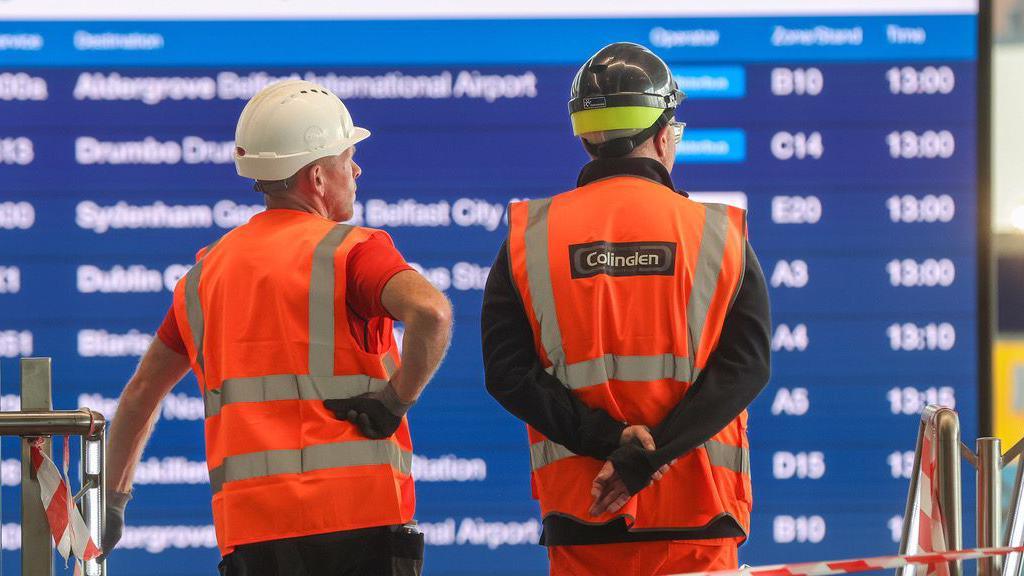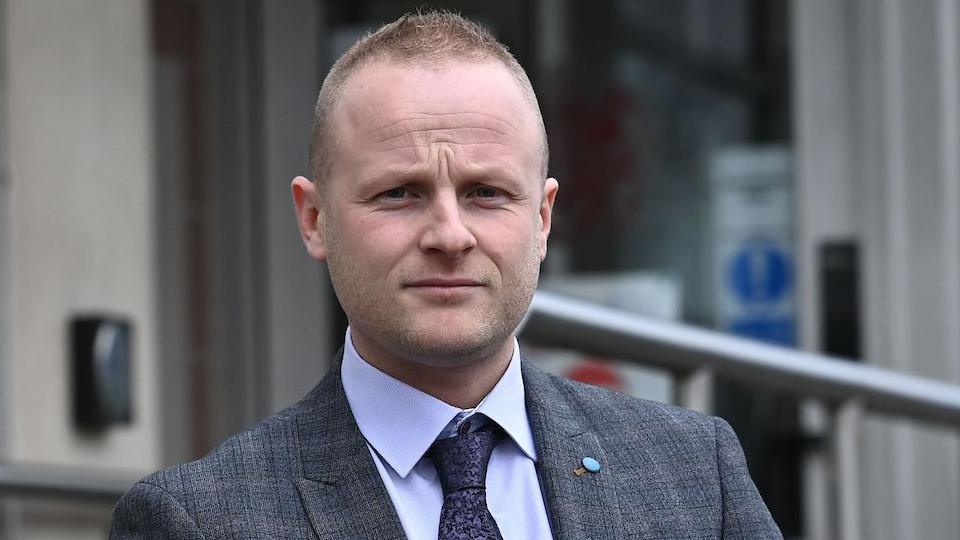Kimmins 'stands firm' over Grand Central Irish language signage
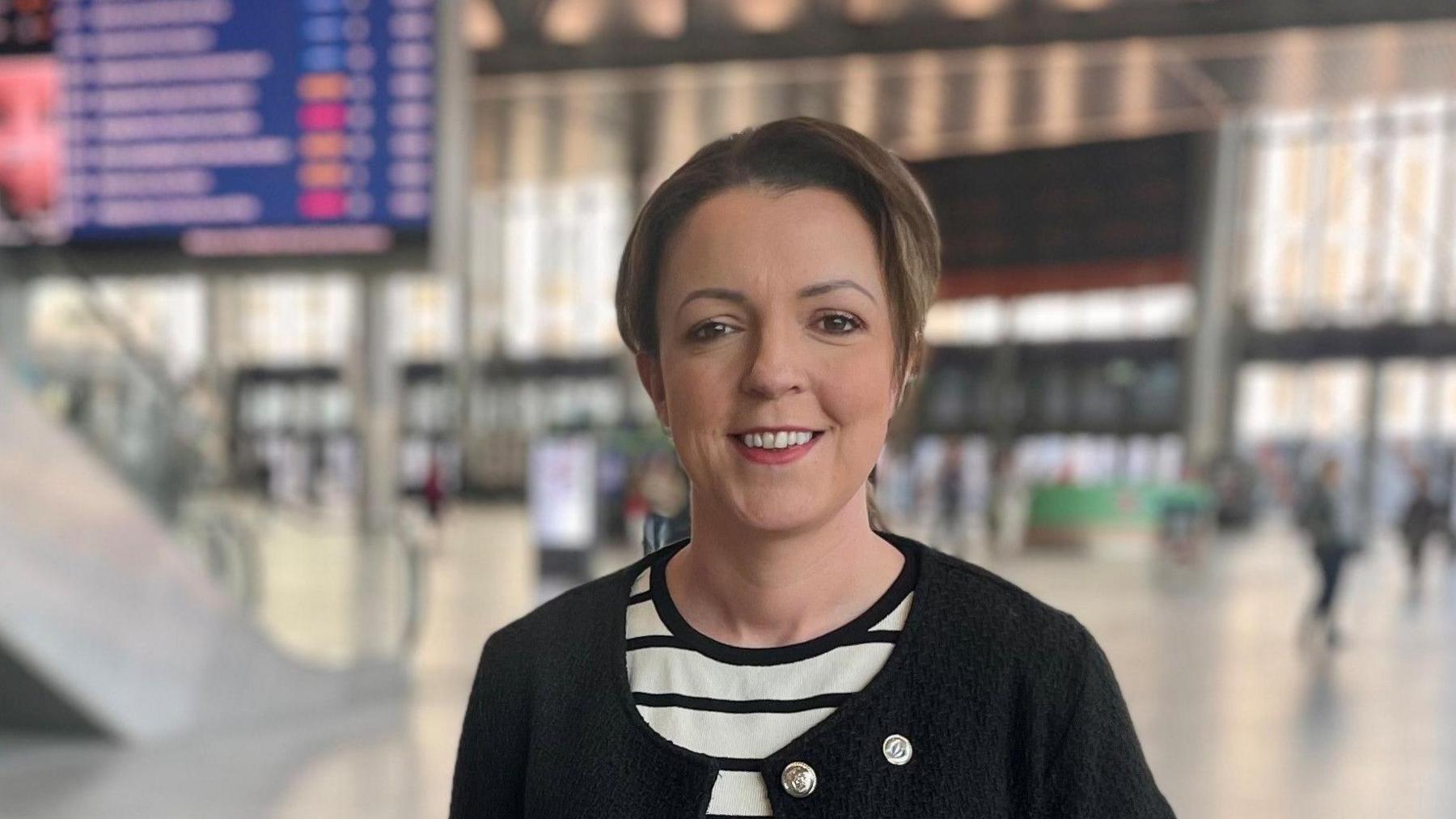
Infrastructure Minister Liz Kimmins said she did not believe the decision she had taken met the definition of controversial.
- Published
The Infrastructure Minister Liz Kimmins has said she "stands firm" in her decision to approve £150,000 for Irish language signage at Belfast Grand Central Station.
Earlier on Thursday, First Minister Michelle O'Neill defended her Sinn Féin colleague's decision and said her rationale for it "stacks up".
However, Deputy First Minister Emma Little-Pengelly, of the Democratic Unionist Party (DUP), said the infrastructure minister's handling of the issue was "utterly shambolic".
Unionist parties have argued that the decision was controversial and therefore should have required executive approval.
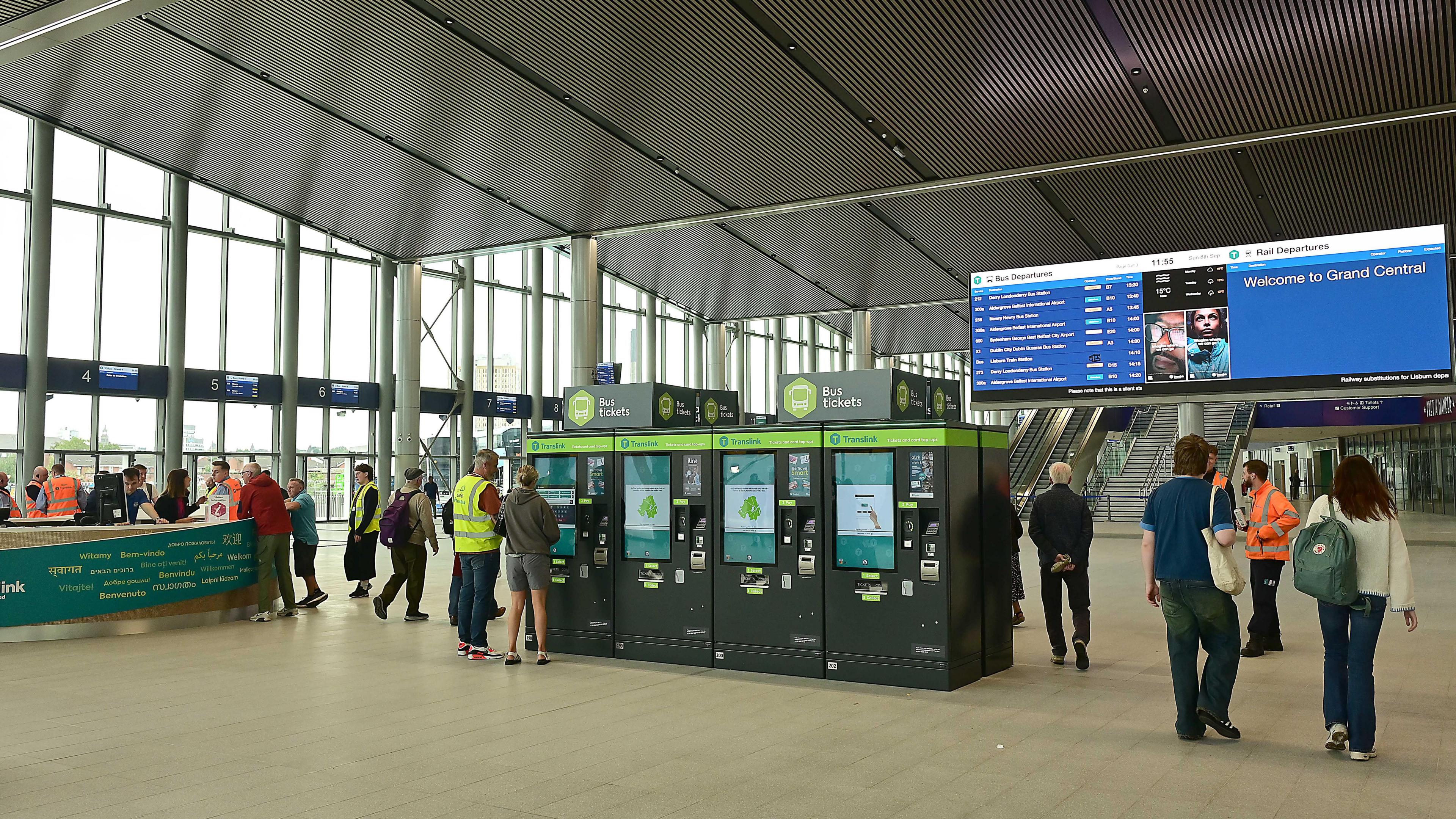
Unionist parties have argued that the decision on Irish language signage at Grand Central Station was controversial and should have required executive approval
The DUP has been critical of the move by Kimmins since it was announced last week, questioning why it was not brought to the executive.
Speaking to PA Media, Kimmins said she did not believe the decision she had taken met the definition of controversial.
"Others can have their opinion... but I'm keen to continue to push this, this is something that will have a legacy not just in Belfast," she added.
"Executive colleagues have had their discussion this morning, it's up to them where they think this should go next but I stand firm in my decision."
She said legal action that has started to challenge the decision meant it would be "irresponsible" for her to say anything more.
On Tuesday, Translink said design work on the new signage had been paused pending potential legal action.
Loyalist activist Jamie Bryson has lodged legal papers seeking leave for a judicial review against the Department for Infrastructure (DfI) over the decision, stating it was taken "without executive approval".
'Deeply disappointed' - Little-Pengelly
O'Neill, deputy leader of Sinn Féin, said Kimmins had explained her funding decision at the executive meeting and the parties would continue to discuss it.
"I believe that the minister was right, she has made her decision, and I think it's the right decision," she said.
Speaking at a press conference, the first minister said Irish "is for everybody" and "no one has anything to fear from the Irish language."
"This was an issue that came up today under 'any other business' because we're very focused today on the budget and tariffs."
She said "a wee bit of perspective is required" over the issue, as the executive had been discussing a budget worth £16bn.
"There will always be political disagreements in a four-party executive - that's just the nature of things," she added.
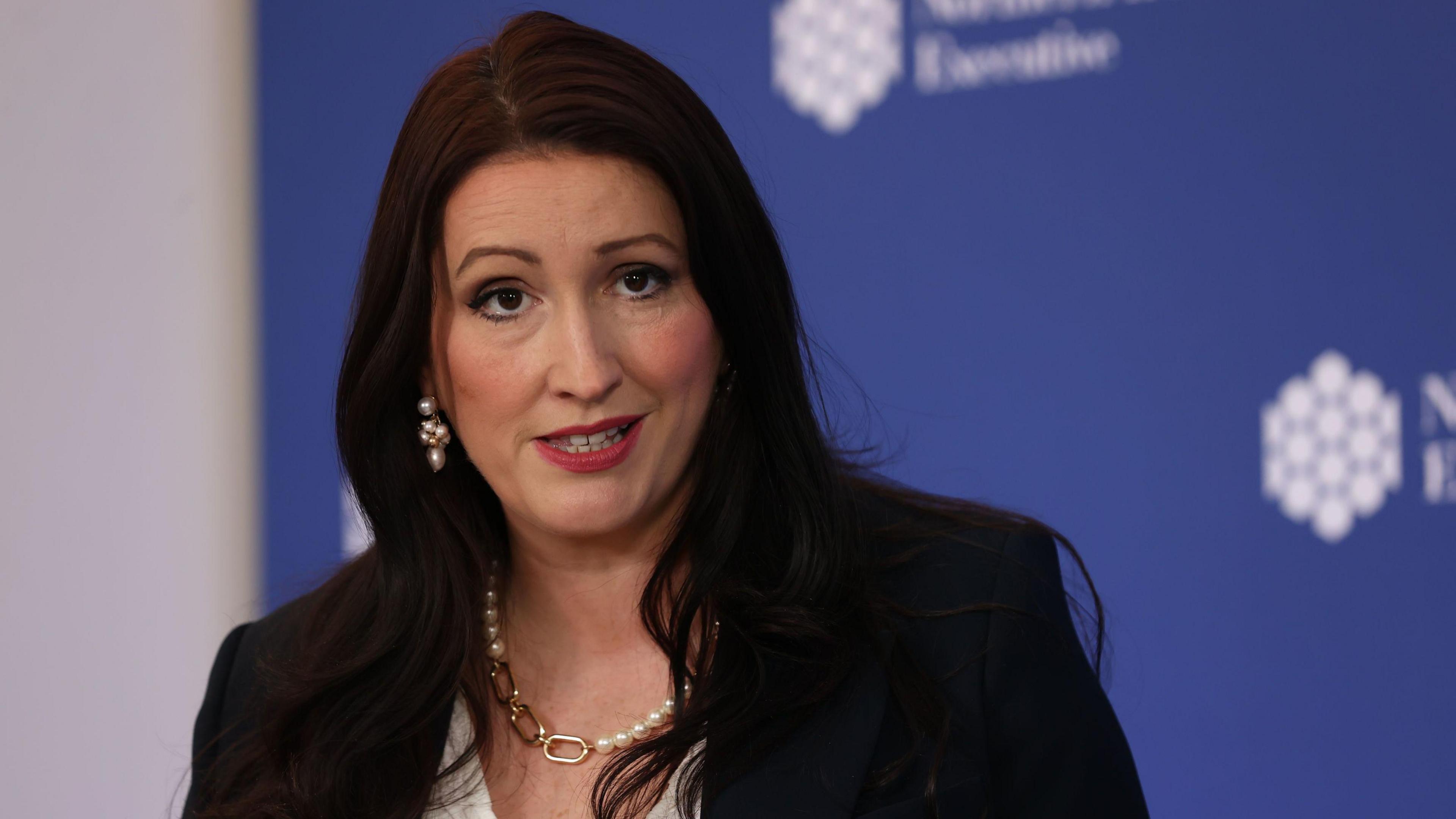
Deputy First Minister Emma Little-Pengelly said she was "deeply disappointed" over how the decision was made
But Little-Pengelly said: "This all looks and feels utterly shambolic by the new infrastructure minister."
The DUP assembly member said she was "deeply disappointed" over how the decision was made and there were "still questions to be answered".
"I think it's absolutely right that I ask questions about how this has come about," she said.
Little-Pengelly said "controversial or significant" decisions "ought to be brought to the executive for consideration and agreement".
She urged the infrastructure minister to bring the issue to the executive "in the proper way".
Finance Minister John O'Dowd was infrastructure minister when Grand Central opened last year and faced criticism at the time for not including dual-language signage at the transport hub.
Asked about that, he said during his time in the role he was "preparing the ground work for the decision that the new minister has taken".
The Sinn Féín minister sought to return focus to the budget.
"Politicians are often lectured on the need to deal with bread-and-butter issues. There's no more important issue than the budget," he said.
"Today we have announced £16bn worth of investment in public services, day-to-day spending, plus over £2bn in capital."
Analysis: 'Dispute will continue to follow the executive'
And so Stormont stumbles on. But this has been the first thing to trip it up since the return of devolution exactly 14 months ago.
Previous press conferences have seen parties on the same page so often at times they've even been criticised for being a bit dull.
The same could not be said for today's appearance at the podiums.
The deputy first minister made it clear she wasn't for backing down in her criticism of Liz Kimmins while Sinn Féin's John O'Dowd hit out at the media for focusing on this issue when in his view the budget should trump a culture war.
Although we're told that when the issue was raised at the executive table there was no war of words, the disagreement that followed in public means whether some parties like it or not, the dispute will continue to follow the executive about in the weeks ahead.
The weather may be warming up but inside Stormont it's feeling a lot nippier than it did just a few months ago.
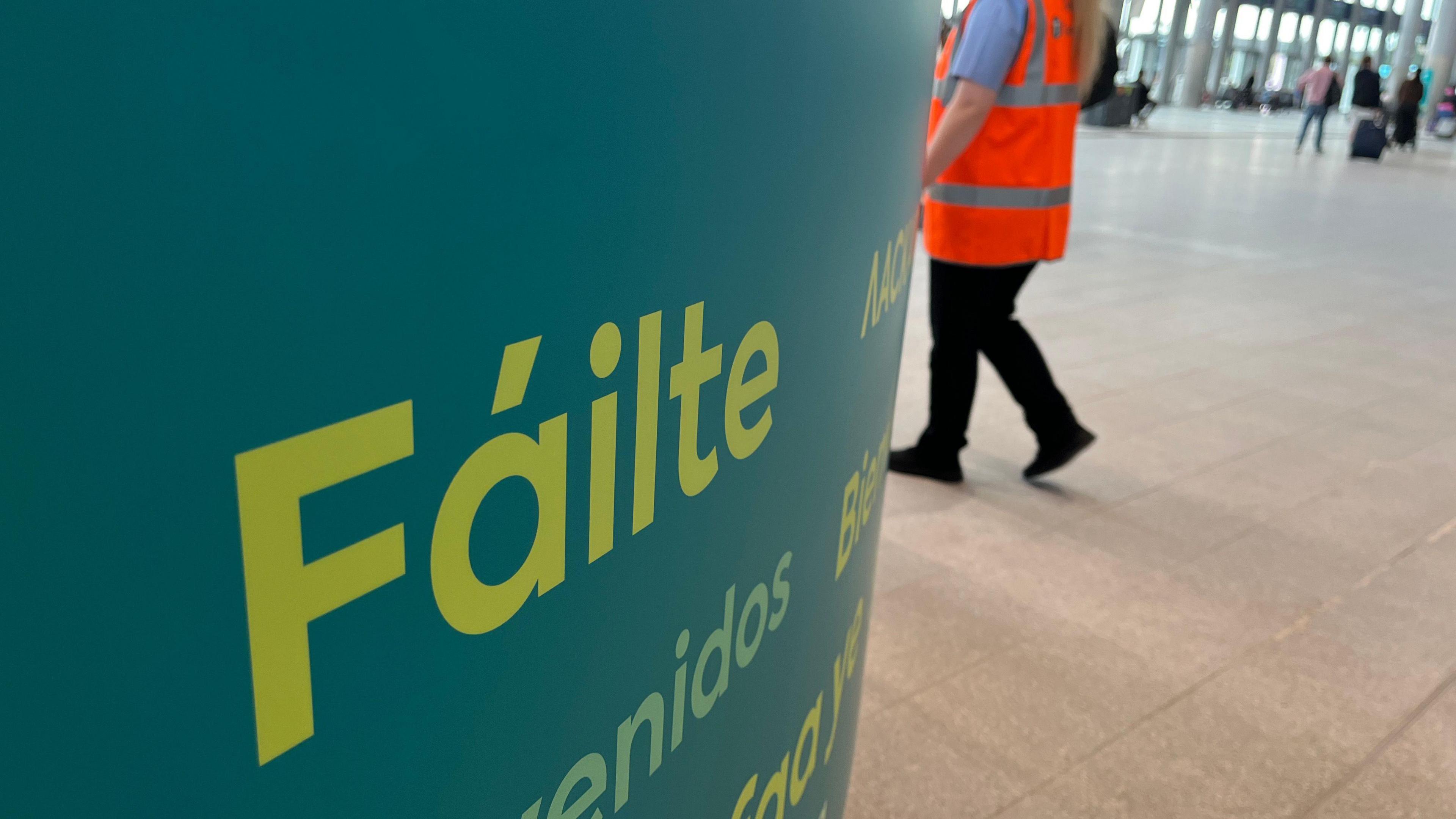
Translink said design work on the new signage had been paused pending potential legal action
Meanwhile, ministers have unanimously signed off on a final budget for 2024/25.
They agreed a draft budget before Christmas which was then sent for public consultation for 12 weeks.
While announcing the Executive's Budget on Thursday, Finance Minister John O'Dowd said the executive is "working to do things differently" and to "prioritise the limited funding we have available to make real change for the better in people's daily lives".
O'Dowd announced £215 million going towards "cutting health waiting lists and supporting investment in elective care".
"There is no doubt that the financial outlook still remains incredibly challenging particularly given the Westminster Government's continued policy of austerity," he added.
What is the row over Irish language signs at Grand Central Station?
The Northern Ireland Act, which sets out how the executive operates, states that ministers must bring issues that are significant or controversial - or which cut across the responsibility of two or more ministers - to the executive for approval first.
Unionist parties have argued that the decision on Irish language signage was controversial and therefore should have required executive approval.
They have also questioned the use of public money on the signage at a time when departments are working within a difficult financial climate.
Sinn Féin has not said much publicly about the issue, but on Monday assembly member Declan Kearney emphasised that "the Irish language is now thriving in communities across the island", despite "a history of persecution and discrimination".
"That is reflected in the official recognition which it now enjoys both in the south and north of Ireland," he said.
"Sinn Féin fully supports the rights of Gaeilgeoirí (Irish speakers) as we continue to build a society underpinned by inclusion, rights and respect for all."
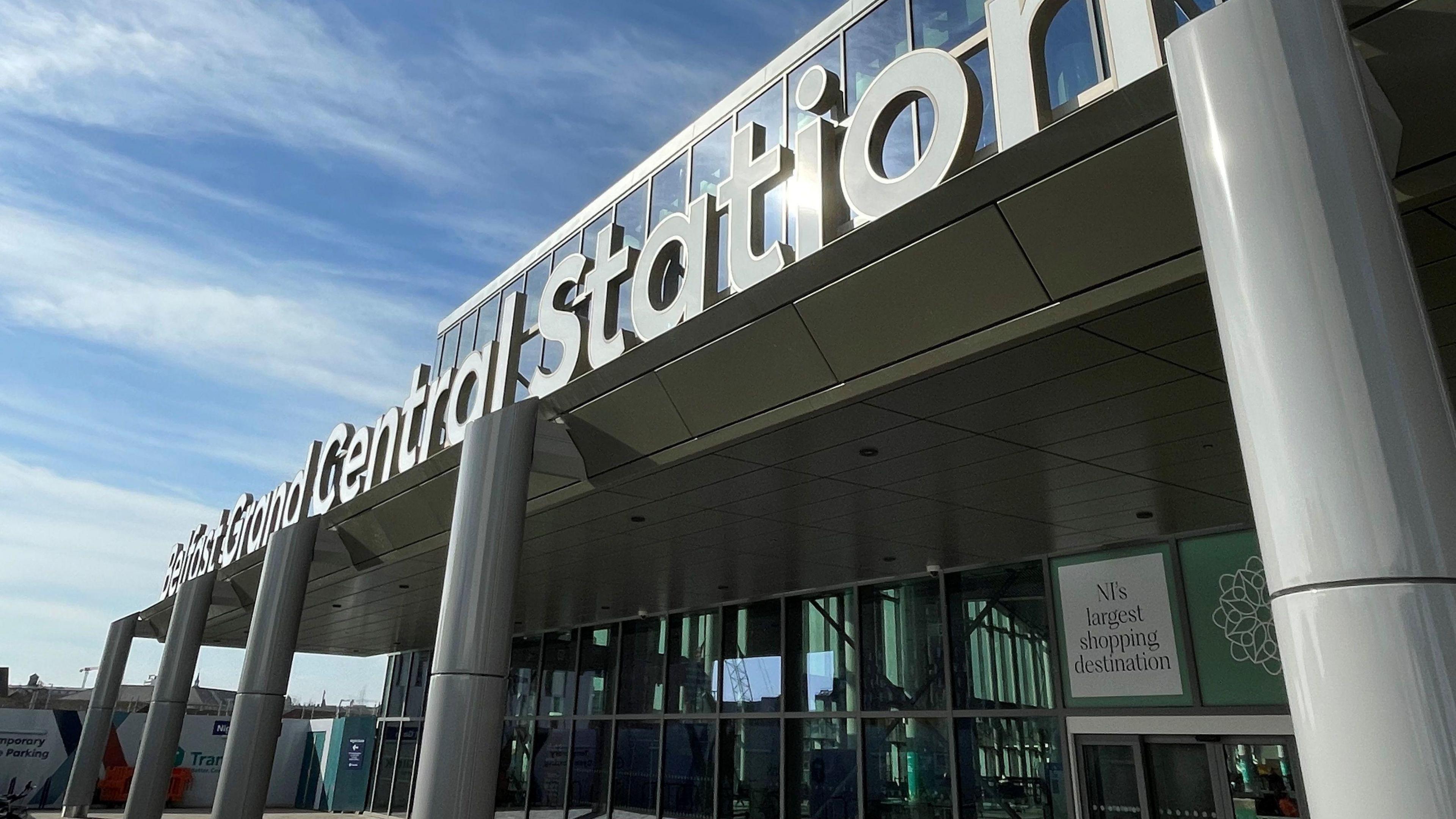
The dual language signage was due to be installed at the transport hub in south Belfast which opened last year
This is not the first time that parties at Stormont have clashed over the Irish language, but the DUP has insisted this latest issue is "not a crisis".
Tensions have been growing between the DUP and Sinn Féin over other issues linked to funding for cross-border Irish language services, which are facing a £650,000 cut.
The finger of blame is being pointed at the DUP for refusing to allow the matter to reach the executive.
- Published24 March
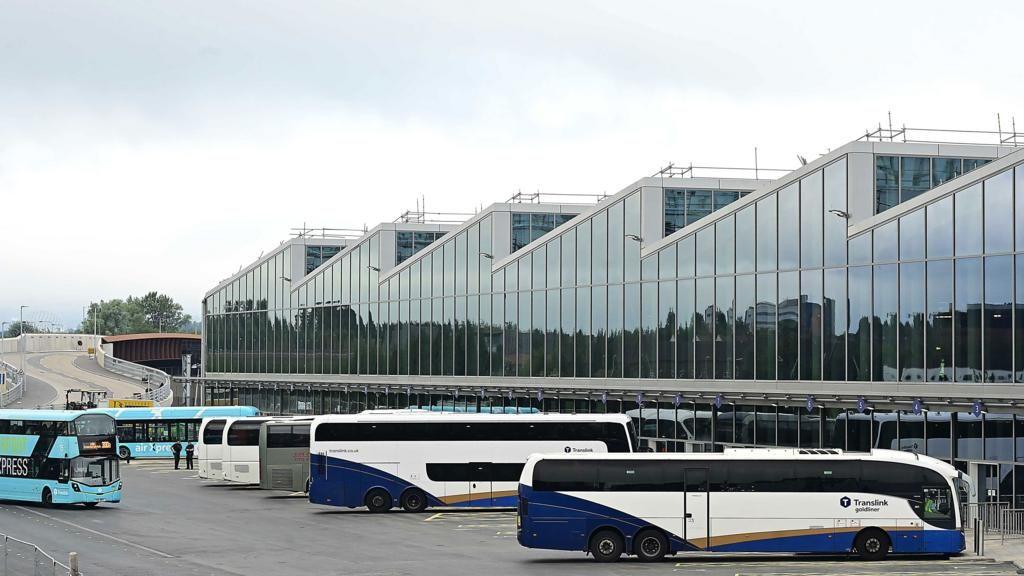
- Published4 September 2024
